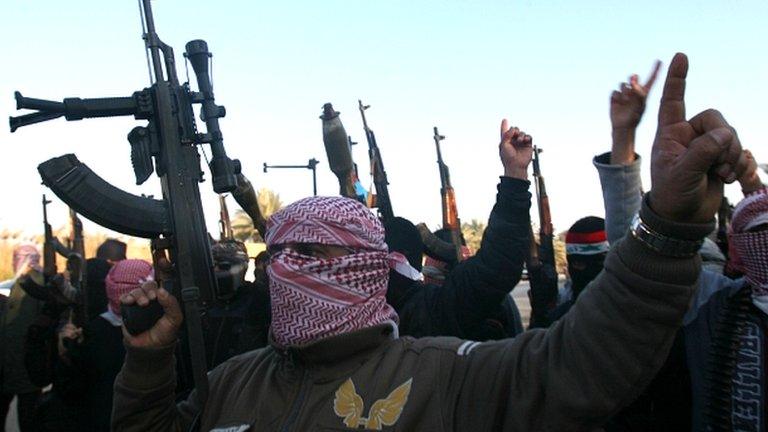Life under IS in Falluja where a sack of flour costs $850
- Published
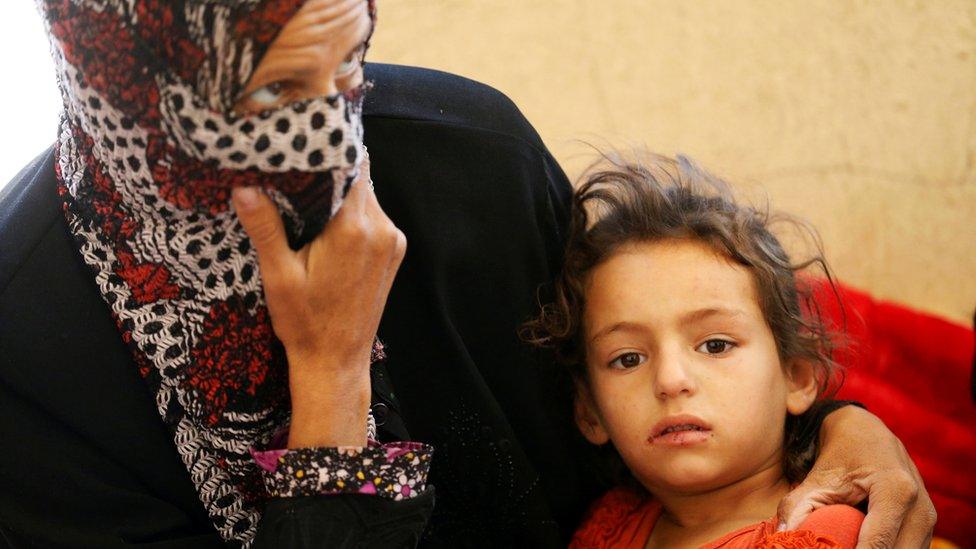
Some families have fled villages around Falluja and gathered in the town of Karma
Details are emerging of the horrifying conditions faced by civilians trapped inside the Iraqi city of Falluja and the extreme risks they are taking to escape.
One man said a bag of flour in the city - which was taken over by so-called Islamic State (IS) militants in January 2014 - now costs $850. One family reportedly lived off grass during a four-day escape bid.
As the Iraqi army and allied forces, backed by coalition air strikes, attempt to recapture the city, aid agencies say Falluja's residents - as many as 50,000 people - have no safe routes out and are likely to be caught in the crossfire.
'No food at all'
"Food and medicines are in extremely short supply in the city. Some families have been going through garbage for food," the UN refugee agency's Caroline Gluck in Baghdad told the BBC.
"Some people were so desperate that they committed suicide. Children are showing signs of trauma, they're clearly terrified."
Baahjet Ibrahim, an imam who has escaped and is in a refugee camp in Barzinjah, told the BBC: "Those who are inside cannot leave and those who are outside cannot help them.
"There is no food at all. A sack of flour costs a million dinars ($850, £580) and more.
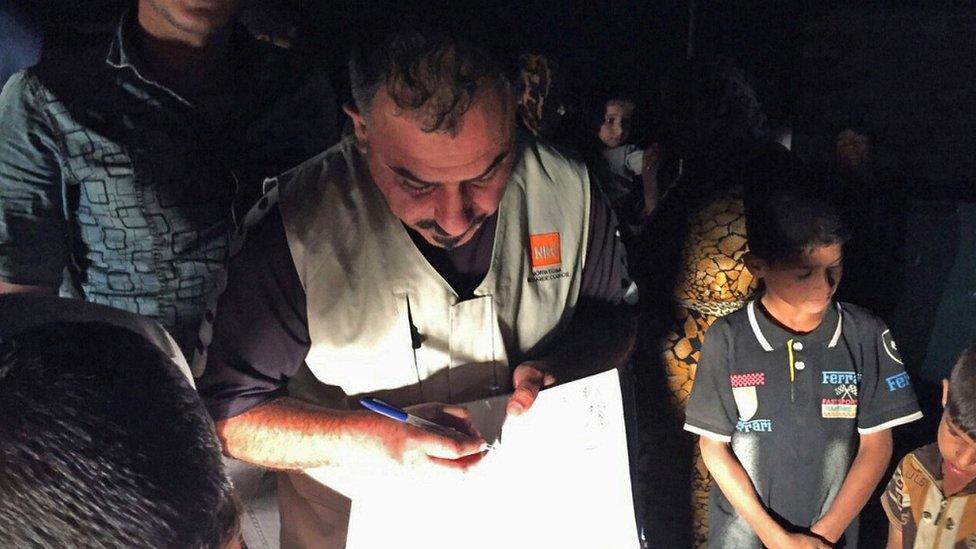
Shocking stories are coming to light as people reach refugee camps
"We demand that the security forces act with professionalism and dignity, like all the armies in the world, to let people escape, to receive and respect them, because there are children, elderly and sick people among them," Mr Ibrahim said.
Hiding in drainage pipes
Escape from the city is fraught with dangers, those who have managed to flee say.
"[Civilians] have survived on dried dates and hot water from the river," says Becky Bakr Abdullah of the Norwegian Refugee Council (NRC).
"They also tell me about an extremely dangerous escape where they have run in groups of 15 to 16 families, often barefoot, during the night carrying the elderly and sick with children.
"Along the way they have had to hide in big drainage pipes and raise white flags in order not to be shot at.
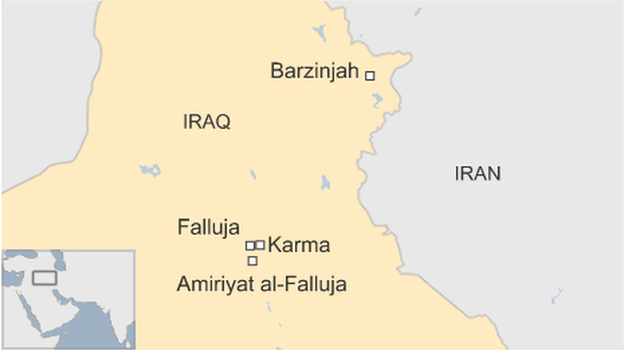
People who have escaped the area around Falluja can reach refugee camps nearby, like Karma, or further away, like Barzinjah
Ms Gluck says the UNHCR was told of a family of six who "spent four days hiding in a river, escaping from IS, waiting to be collected by the security forces, and they were forced to eat grass."
"It's very clear that people are taking extreme risks in order to leave Falluja but it underlines how desperate their situation has become," she added.
'A human catastrophe'
A hotline has been set up for the civilians in Falluja who want army assistance to leave - but air strikes continue, fighting is expected to intensify, and IS threatens to kill those who try to escape.
The NRC says it believes that just one family has escaped from the city in the past nine days.
"A human catastrophe is unfolding in Fallujah. Families are caught in the crossfire with no safe way out," says NRC Secretary General Jan Egeland.
Foreign humanitarian organisations are unable to enter Falluja. They are providing help to people from villages nearby, who manage to exit and reach refugee camps.
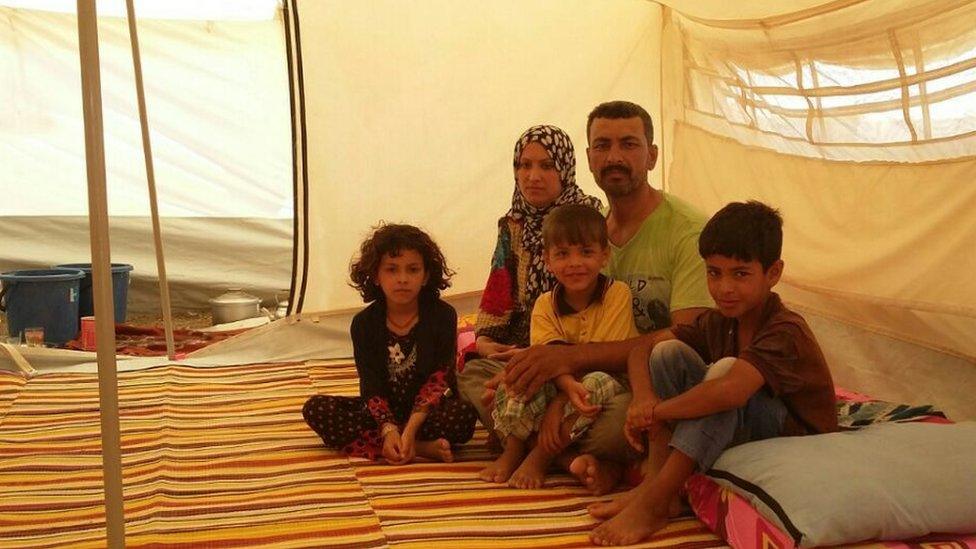
Hundreds of families have escaped from the villages around Falluja and found shelter in refugee camps
Ms Abdulla said the families she has met speak of "an extremely dire situation".
"There are mainly two reasons for why people don't escape," she told the BBC World Service.
"One is because they are obviously extremely afraid. There are bombs and rockets and shootings right outside their doorstep so people have stopped even moving outside their houses.
"The other reason is, and this was a mother of three who told me this, when rumours got out that their family wanted to escape, IS came to their door, started beating up their men and started threatening the family's lives."
Faiq Ismali fled Falluja and is living in Barzinjah camp. He told the BBC that the people still there were "being bombed randomly".
"We are demanding that the government open a safe corridor for the families and protect them because they are between Daesh [IS] and the army," he said.
Not another Ramadi
Falluja has been under siege from Iraqi and pro-government forces for more than six months, and it has been under IS control for more than two years.
The city is only partly-surrounded by Iraqi and allied forces. The BBC's Jim Muir, who is on the outskirts, says it seems the final all-out onslaught has yet to start, so fighting is expected to intensify.
The International Committee of the Red Cross (ICRC) is mobilising to distribute hygiene and shelter aid items to people who have fled the area recently.
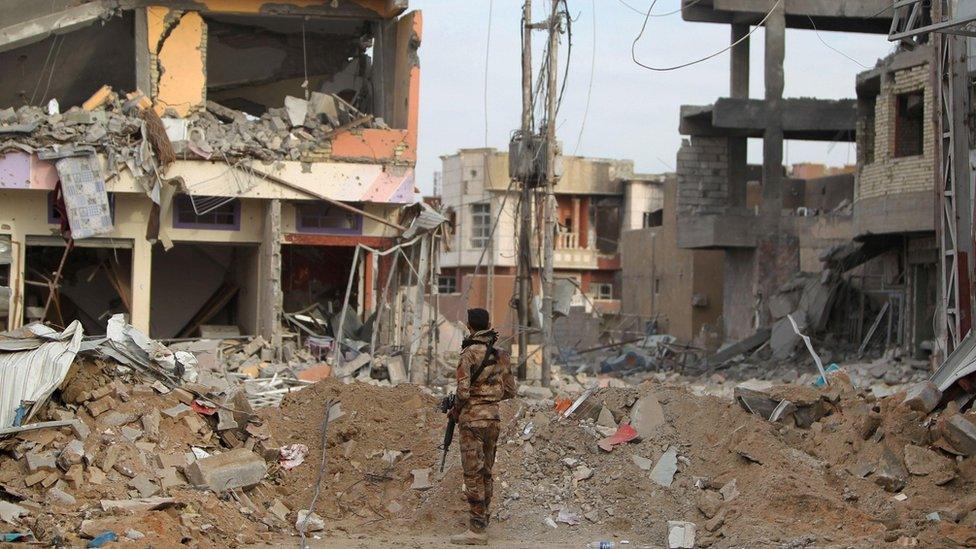
Many buildings in Ramadi were reduced to rubble
It warns that Falluja "must not become another Ramadi".
Ramadi, 50km (20 miles) west of Falluja, was left in ruins after being occupied by IS fighters.
The Iraqi military re-took the city in December 2015 but the city's infrastructure including roads, electricity, water supply and bridges has been badly damaged. Some civilians have started to return but they are at risk from unexploded bombs that have been left there.
- Published31 May 2016
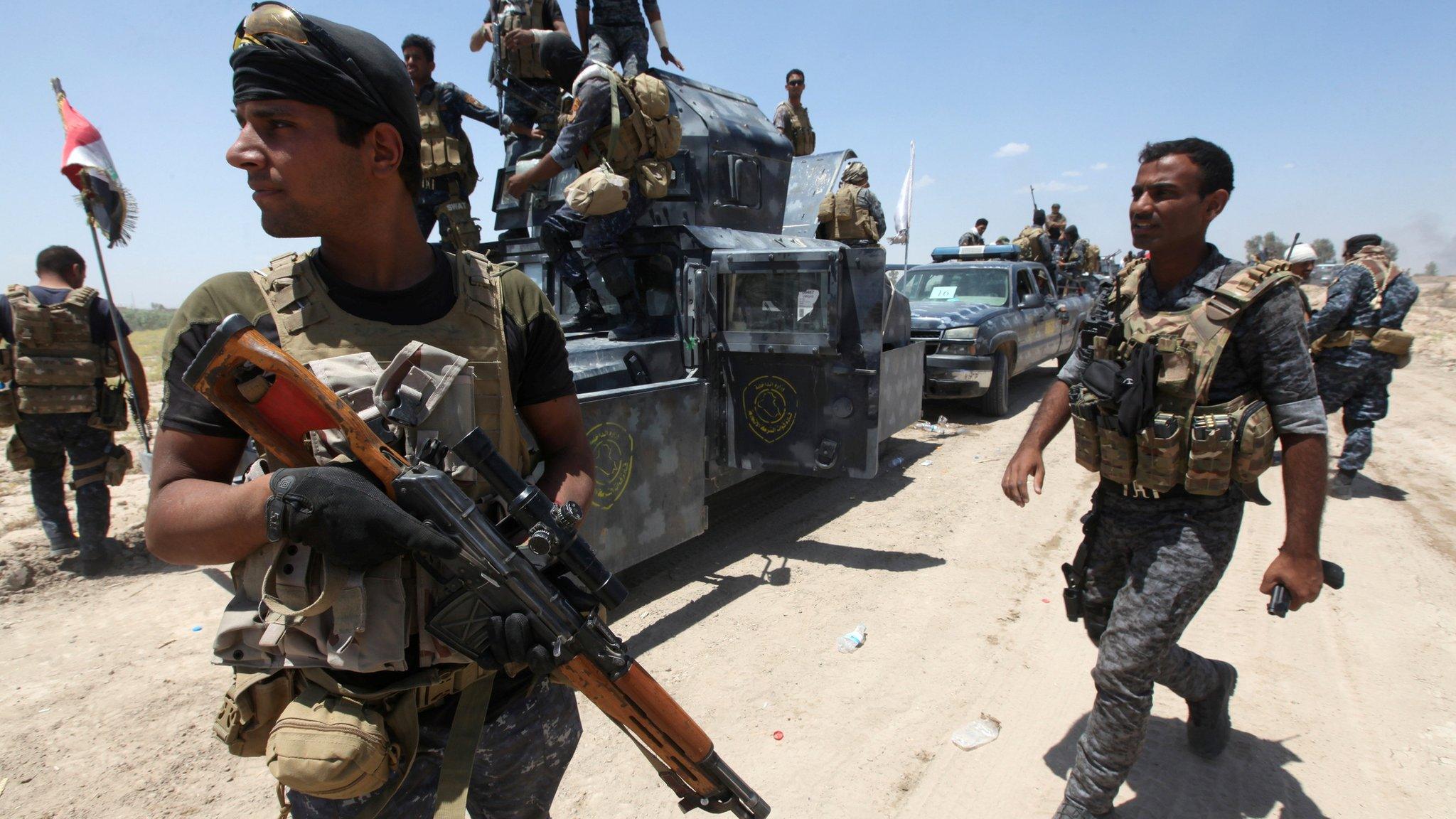
- Published30 May 2016
